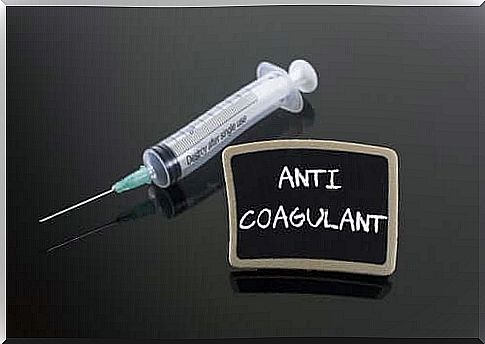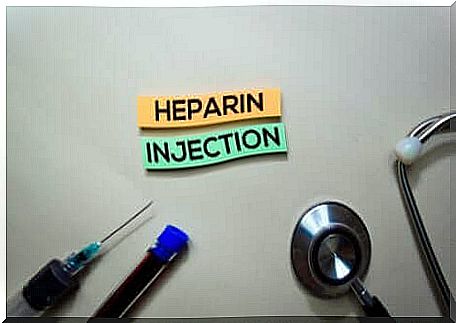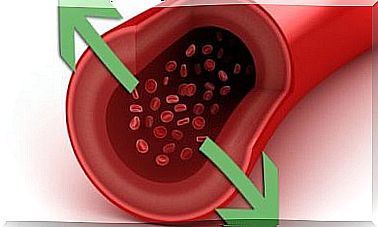Recommendations For People On Anticoagulant Therapy
Anticoagulant therapy should be carefully and frequently monitored by a doctor. Thanks to it, we reduce the risk of suffering from bleeding.

Anticoagulant therapy, as the name suggests, is a treatment used to prevent the blood from starting a clotting process. It prevents the formation of thrombi which could endanger the health of a person.
This treatment includes different drugs which, by making the blood take longer to clot, reduce the incidence of thromboembolic disease.
During this pathology, a thrombus, which is a clot in the circulatory system, as it travels through blood vessels, clogs a vein or artery, preventing blood from reaching tissues properly.
Currently, many patients require anticoagulant therapy. In fact, it is estimated that around 2% of the population needs it; the vast majority of this percentage is represented by people over 65 years of age.
Nevertheless, this type of treatment needs careful monitoring. There is a high risk of side effects, such as bleeding. It is for this reason that, in this article, we are going to give some recommendations to be followed by people on anticoagulant therapy.
Why is anticoagulant therapy used?
Anticoagulant therapy can follow different rules and forms of administration. First, oral anticoagulants are used in people who suffer from atrial fibrillation.
Atrial fibrillation is a cardiac arrhythmia, that is, an alteration in the normal rhythm of the heart. It is unfortunately very common because it affects almost 9% of the population. In addition, the number of people affected increases with age.
In addition, atrial fibrillation increases the risk of clots forming in the chambers of the heart. These clots tend to break off and move into the blood, which can block any vessel and cause an embolic accident.
Anticoagulant therapy is also used in people who wear a heart prosthesis and in those at risk of developing venous thromboembolism. Other indications for this treatment are:
- Prevention of acute myocardial infarction, especially in people who already have arterial disease, such as atherosclerosis.
- People at risk of stroke.
- Patients who have had multiple heart attacks.

What recommendations should be followed with anticoagulant therapy?
As we have already mentioned, this treatment must be carefully controlled because slowing blood clotting leads to a greater risk of bleeding. For this, it is necessary to take a blood test every 4 weeks at most.
Anticoagulant therapy should be prescribed and monitored at all times by a doctor or nurse. They are the ones who will establish the exact dose. It is best to take it at the same time every day and remember to do so. If, one day, one forgets to take the indicated dose, one should never take a double dose to compensate for this forgetfulness.
Likewise, any time you need to take a new medication, you should talk to your doctor. Why ? Because this type of drug has a high risk of reaction with other drugs.
In addition, it is very important to be aware that you should not stop taking this treatment if your doctor has not told you to.
What other recommendations are adequate?
It is very important, when you are on anticoagulant treatment, to avoid drinking alcohol and smoking. Some studies claim that you should also watch your diet. These drugs interfere with the metabolism of vitamin K.

Vitamin K is a vitamin that helps the clotting process. It is present in many foods such as spinach, the liver of animals or other plants. It is therefore necessary to control the ingestion of this type of food. It is recommended that foods containing vitamin K be limited to a maximum of two servings per day.
Another basic recommendation is to watch out for any type of bleeding. For example, if there is blood in the stool, in the urine or when coughing, it is best to go to the doctor, even if it is before the scheduled appointment.
In the case of women of childbearing age, if they want to get pregnant, they must first consult their doctor. Blood thinners can interfere with pregnancy. The same thing happens if you need an operation.
To conclude
All people who need anticoagulant therapy should properly follow all checks with the doctor. It is important to know that these are drugs with many risks that cannot be taken lightly.









